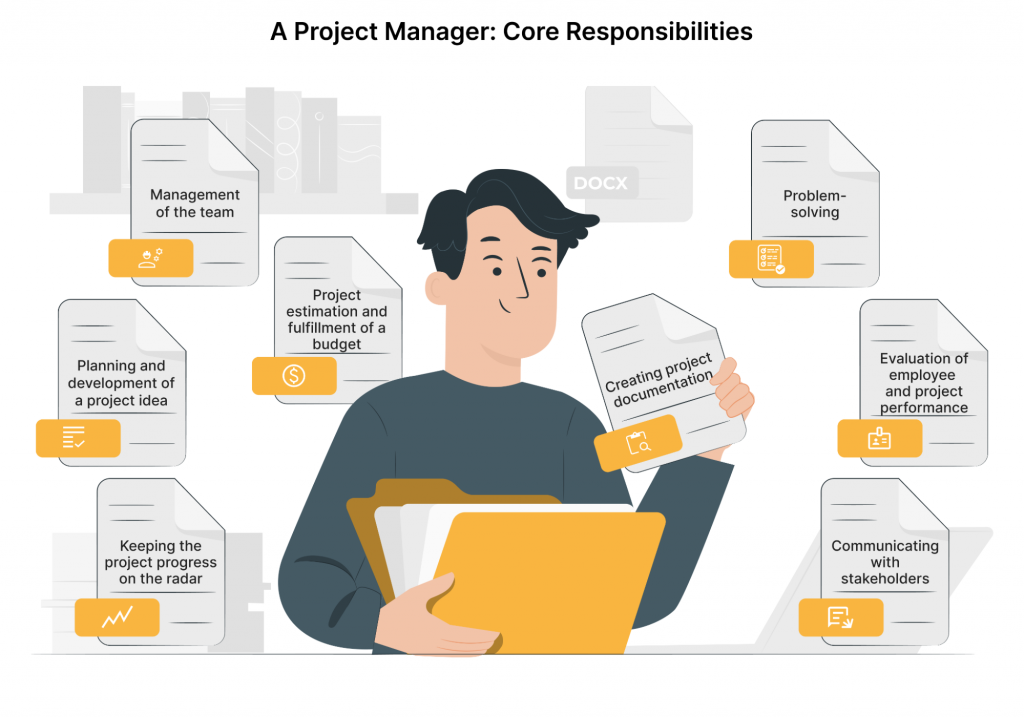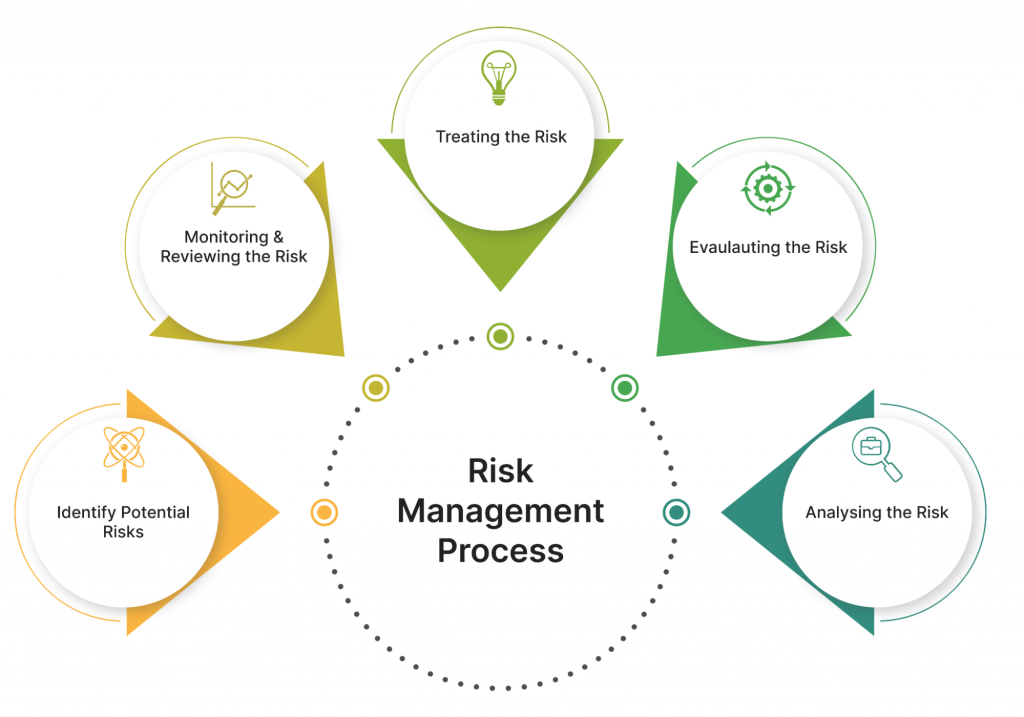When choosing a team for application development, a project manager is a specialist many tend to overlook. Especially if a business client has never considered project management a crucial driver of a successful outcome. This article explains why a project manager is not someone to underestimate and what role they carry out here at IDAP.
Related: Why Project Managers are Driving Software Development Process: 101 Guideline for Business Leaders
Who is a Project Manager?
A project manager (PM) in outsourcing oversees that software development runs smoothly by carefully planning, executing, and delegating tasks to implement the software successfully.
PMs’ primary concern is to predict risks, detect problems, and eliminate them least painfully so they won’t impact the project in a wrong, irreversible way. Without the project manager’s careful eye of providence, even the slightest issue can make things go south, e.g., mess the project’s timeline or tremendously increase the final cost.
“A project manager is a crackerjack in multitasking while running an app development process, no matter whether they are techie or non-techie. This person can be a mom or dad in some cases. Sometimes they are a business analyst, designer, team defender and advocate, client partner – everybody into one box. Project management is engaging but sometimes overwhelming work. Clients and developers often underestimate it.”
Zoya Boyko
Project Manager, IDAP
Related: Whether Tech Background is Required for a Project Manager?
Project Manager’s main responsibilities
The scope of responsibilities that fall on a project manager’s shoulders can vary depending on the scale of the project, the team, and the client’s requirements. Some apps may take only a couple of weeks to develop, while other large-scale projects may even last several months to years.
An attentive project manager is key to the successful delivery of the app. They have to deal with large pools of different tasks, such as:
- Assembling project plans, giving teamwork assignments, identifying resource needs, and escalating any issues appropriately.
- Preparing the business case and showing the impact of a project in terms of costs, savings, revenues, and benefits.
- Tracking core milestones and adjusting project plans to meet dynamic business needs.
- Managing budgets and timescales effectively.
- Building strong working relationships with all key stakeholders.
- Coordinating efficient communication with all stakeholders throughout the process.
- Ensuring an excellent understanding of the project at hand and the priorities of the business units affected by any change.

Mobile app development: Project Manager as a risk mitigator
A project manager is responsible for predicting possible risks and preventing or eliminating them timely. These risks can be technical, monetary, and scheduling-based. The project manager takes complete authority to reduce their probability while executing a project.
Mitigating Technical Risks
The project manager has to be perfectly aware of the individual technical competencies of their team members. If that criterion is overlooked, it may increase the chances of the project being delayed and not meeting the deadline.
However, such delays can be avoided if a person responsible for the project frequently communicates with the team and puts enough effort into monitoring their work. A good manager understands all specifics of the laid down tasks and can delegate them to the most suitable specialists.
Mitigating Monetary Risks
Correctly predicting and estimating cost-based risks is a difficult task that becomes easier due to experience. Managers that have handled several projects will be able to follow their professional intuition in decision-making to be sure that the costs of deploying tasks won’t exceed the planned budget.
Mitigating Scheduling Risks
Another line of risks that can influence meeting the deadline – is getting outside of the schedule. The PM’s core responsibility is ensuring that a task is executed at the right time by the right person.
The project manager can either assign the tasks by calculating each time and go from the shortest to the longest based on the Shortest Processing Time (SPT) or schedule due dates based on the Earliest Due Date (EDD). Every manager follows their own scheme to schedule and delegate tasks to specialists assigned to a particular project.
The PM predicts the risks, classifies them according to the threat to the project’s success from high to low, and then works on eliminating them.

Project Manager’s role at IDAP
At IDAP, a project manager is a person who accompanies the project from the very beginning until the very end. Project managers are the communicator between the client and a team of developers. Project managers ensure that the right person carries out every task at the right time.
The Project Manager is an essential component of every product our hands develop. Whenever IDAP gets a new project, we assign a personal project manager to the client. The assigned specialist will take a careful and attentive look at the business side of your idea if that’s what you need.
Then, after making sure we did our homework, we will plan the main functionality of the future Minimum Viable Product MVP and lay out an approximate implementation plan. After our discussion, we will sign an agreement and get down to business if you are ready to start the product development.
Throughout the process, the PM communicates every project stage, every problem, and every achievement. You won’t ever notice the time difference, as they will be here when you need them.
Related: About Project Management Role Firsthand: Confession of a Project Manager
Summary
The Project Manager is your business adviser, risk manager, and means of communication with developers. They know all the ups and downs of app development and how to make the most of the tight time and money. Contact our sales team if you want to involve experienced project managers in your app development. Explore how you can work with highly skilled specialists to burst into the market quickly.



